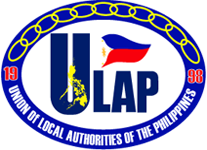The SEAL OF GOOD LOCAL GOVERNANCE (SGLG) is cited as an example of an Open Government Partnership (OGP) Subnational initiative in the OGP website . The article talks about the OGP International program of building networks of subnational champions of open government in different countries.
Here's the link: http://www.opengovpartnership.org/how-it-works/subnational-government-pilot-program.
SGLG is a program implemented by the Department of Interior and Local Government. The Union of Local Authorities of the Philippines represents local governments in the Philippine OGP Steering Committee, and has shared the impact of the SGLG program to subnational governance in the OGP International Summit in Mexico, in November 2015.
EXCERPT
The Philippines Seal of Good Local Governance Program (The Seal): Incentivizing Local Governments to be More Transparent and Better Serve their Residents.
Many national level governments have also taken important strides to advance open government reform work at the local level in their countries. Using a comprehensive indicator assessment and performance-based grants incentive system, the Philippines "Seal of Good Local Governance" (The Seal) program aims to:
1. Improve government service delivery by fostering openness and participation; and
2. Improve the capacity of local governments.
To confer the Seal, a total of 1,676 civil society organizations assess 1,715 provincial, city and municipal governments based on a set of criteria that fall under six umbrella areas:
1. Financial Good Housekeeping;
2. Disaster Preparedness;
3. Social Protection,
4. Business Friendliness and Competitiveness;
5. Peace and Order; and
6. Environmental Management.
To make assessment possible, local government must first open up their information. As a result of the program today more than 90% of 1715 provincial, city and municipal governments regularly upload their financial documents to a "Full Disclosure Policy Portal," which can be viewed and downloaded by citizens at anytime. Local governments who meet the program's criteria are conferred with the Seal and can then access incentive packages, such as grants and loans from financing institutions to implement projects in support of the Millennium Development Goals. Through performance-based grants such as these, around 15,000 development projects amounting to $1.2 billion dollars were implemented across 1,500 local governments.
The program has had significant results on local governments. For example, in 2009, before the program was implemented, 480 local governments obtained "adverse financial audit findings." In 2013, this number was reduced to only 120, a 75% decrease. Moreover, access to some services at the local level has also improved considerably. For instance, before the implementation of the scaled-up Seal in 2013, only 56% of city and municipal governments offered complete maternal care services, compared to 67% a year after the program began. As a further testament to the Seal's usefulness, banks and many government agencies are now using it as a requirement for local governments to access development loans, grants and programs.




